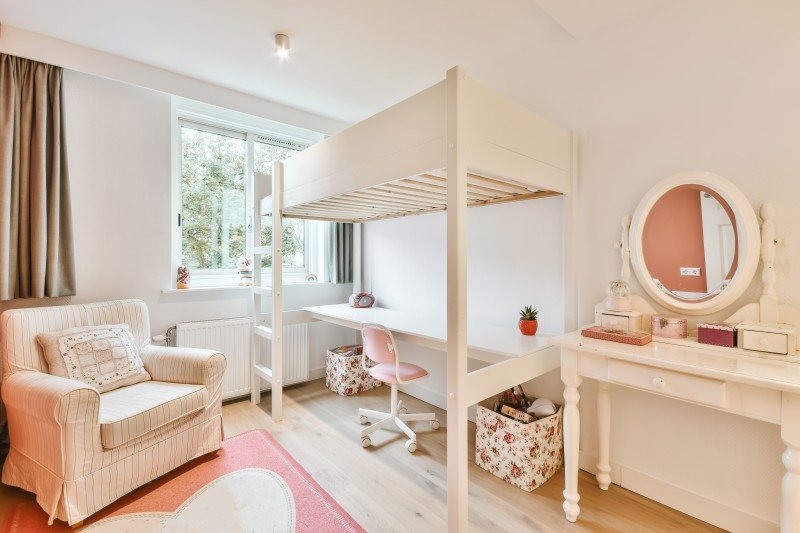bunk_beds1702
About bunk_beds1702
9 Things Your Parents Teach You About Bunk Beds For Kids
Bunk Beds for Kids: A Comprehensive Guide
Bunk beds have been a popular option for children’s bed rooms for several years. They offer a space-saving solution that maximizes flooring area, supplies fun climbing alternatives, and is available in a range of styles that interest children’s creativities. This post explores the benefits, considerations, styles, and safety features connected with bunk beds for kids.
Advantages of Bunk Beds
Bunk beds present numerous advantages that make them an attractive alternative for families. Here are some essential advantages:
-
Space Saving
- Bunk beds allow 2 or more children to share a room without compromising space for play or other activities.
-
Affordable
- Acquiring a single bunk bed can be more affordable than purchasing 2 separate beds.
-
Fun Factor

- Kids frequently see bunk beds as a fun location to sleep and play, fostering a sense of adventure.
-
Adaptability
- Bunk beds are available in various setups, consisting of L-shaped, loft beds, and even convertible styles that can change as children grow.
-
Organization
- Numerous bunk beds feature integrated storage choices, such as shelves and drawers, assisting keep rooms organized.
Key Considerations Before Purchasing
Before investing in a bunk bed, it’s important to think about certain elements, such as:
-
Space Requirements
Measure the room to guarantee that there is sufficient vertical space, permitting appropriate headroom on the leading bunk. -
Age of Your Children
Consider their age and maturity. Numerous manufacturers suggest that children under six must not oversleep the leading bunk due to security issues. -
Weight Limit
It’s vital to check the weight limits of the bunk bed for both the top and bottom bunks to make sure security. -
Style Preferences
Pick a style that matches the space’s decoration and the kids’s choices. -
Product
Bunk beds are readily available in numerous products, such as wood or metal. Each has its advantages and disadvantages regarding resilience and visual appeals.
Designs of Bunk Beds
Bunk beds can be found in numerous styles to fit various aesthetics and practical requirements. Here’s a list of some popular styles:
-
Standard Bunk Beds
Traditional stacked beds that include two beds built one above the other. -
Loft Beds
A bed raised high off the ground, with space beneath for a desk, play area, or storage. -
L-Shaped Bunk Beds
Two beds set up in an L-shape, providing more flooring space and a special design element. -
Twin Over Full Bunk Beds
These options include a twin bed on leading and a full-sized bed on the bottom, accommodating older children or adults. -
Triple Bunk Beds
Created for 3 children, these beds generally consist of 3 stacked beds, ideal for bigger families.
Safety Features to Consider
Making sure the safety of kids using bunk beds is vital. Here are some security features to try to find before purchasing:
-
Guardrails
A bunk bed must include strong guardrails on the leading bunk to prevent unexpected falls. -
Ladders
Guarantee that the ladder is firmly attached and easy for kids to navigate safely. -
Stability
Search for bunk beds with lower centers of gravity and large bases to supply better stability. -
Quality Construction
Select beds made from long lasting products that satisfy security requirements, such as ASTM (American Society for Testing and Materials) policies.
FAQs About Bunk Beds
1. What age is suitable for a top bunk?Generally, children aged six and older are advised for sleeping in the leading bunk. 2. Are bunk beds safe for toddlers?Most specialists encourage versus
positioning young children in the leading bunk due to the
danger of falls and improper ladder usage. 3. Can bunk beds be separated?Many bunk beds are created to be separated into 2 standalone beds,
providing added flexibility as children grow
. 4. How do I maintain a bunk bed?Regularly check for loose screws and use, keep mattresses tidy, and guarantee that the bunk bed is
stable to lengthen its life expectancy. 5.
Are there any unique bed mattress requirements for bunk beds?Yes, bed mattress for bunk beds should fit comfortably without leaving spaces. Typically, thinner mattresses
(around 6 to 8 inches )are recommended for leading bunks for security. Bunk beds use a versatile, useful, and enjoyable service for kids’s sleeping arrangements, taking full advantage of space while accommodating several kids in one room. By considering the crucial elements
of design, security, and space, moms and dads can make an informed choice when choosing the ideal bunk bed for their children’s requirements. With the best care and maintenance, a bunk bed can be a beloved furniture piece that offers years of use and pleasure for kids. Summary Table of Bunk Bed Styles Style Description Best For Standard Bunk Beds Classic style, 2 stacked beds Smaller spaces Loft Beds Elevated bed with open space beneath Research study or play locations L-Shaped Bunk Beds Two beds in an L-shape
Added flooring space Twin Over Full Twin on the top,
| full on bottom Accommodating older kids Triple | ||||||
|---|---|---|---|---|---|---|
| Bunk Beds | Three stacked beds | Larger families By understanding | the different options readily available, designated factors to consider for safety and performance, and appropriate age standards, families | can choose the ideal bunk bed that not | only improves their home | but likewise makes sure a safe and | |
enjoyable sleeping environment | for their children. | Sort by: No listing found. Compare listings Compare |

